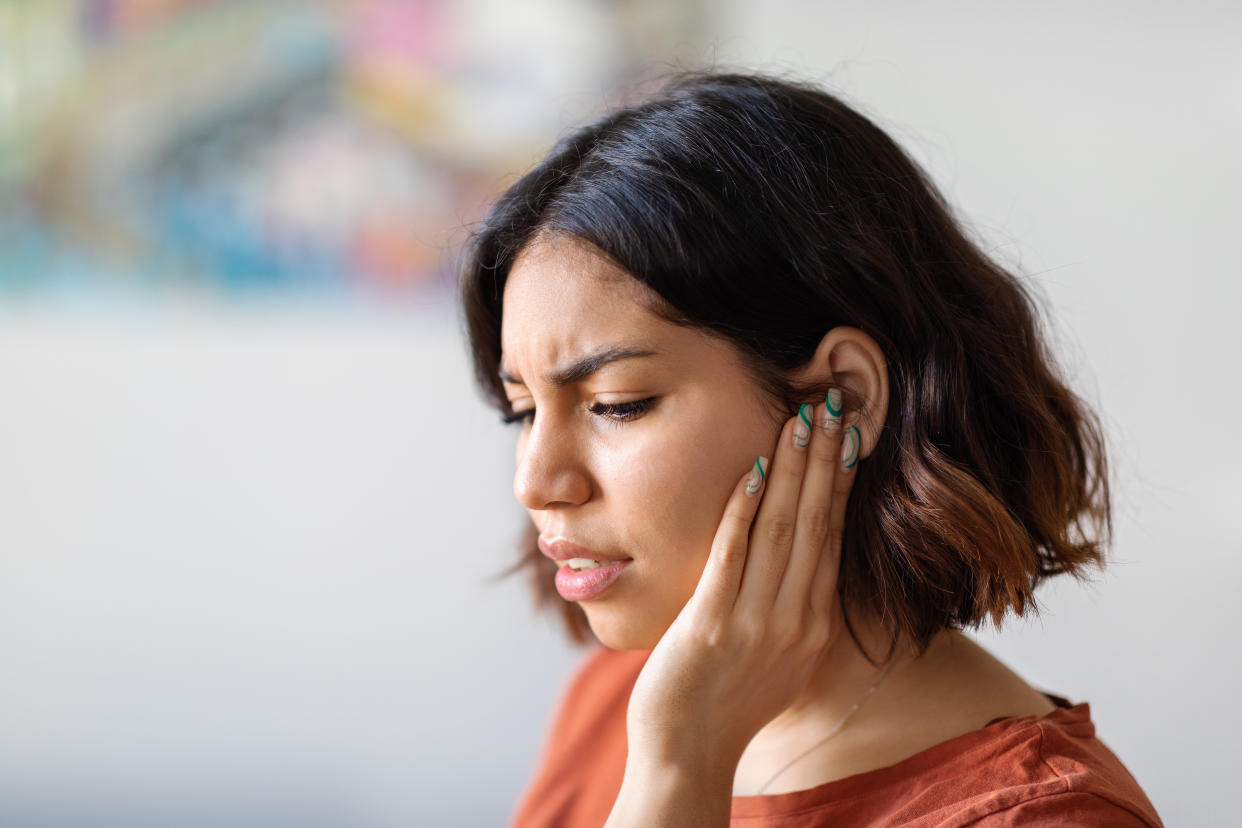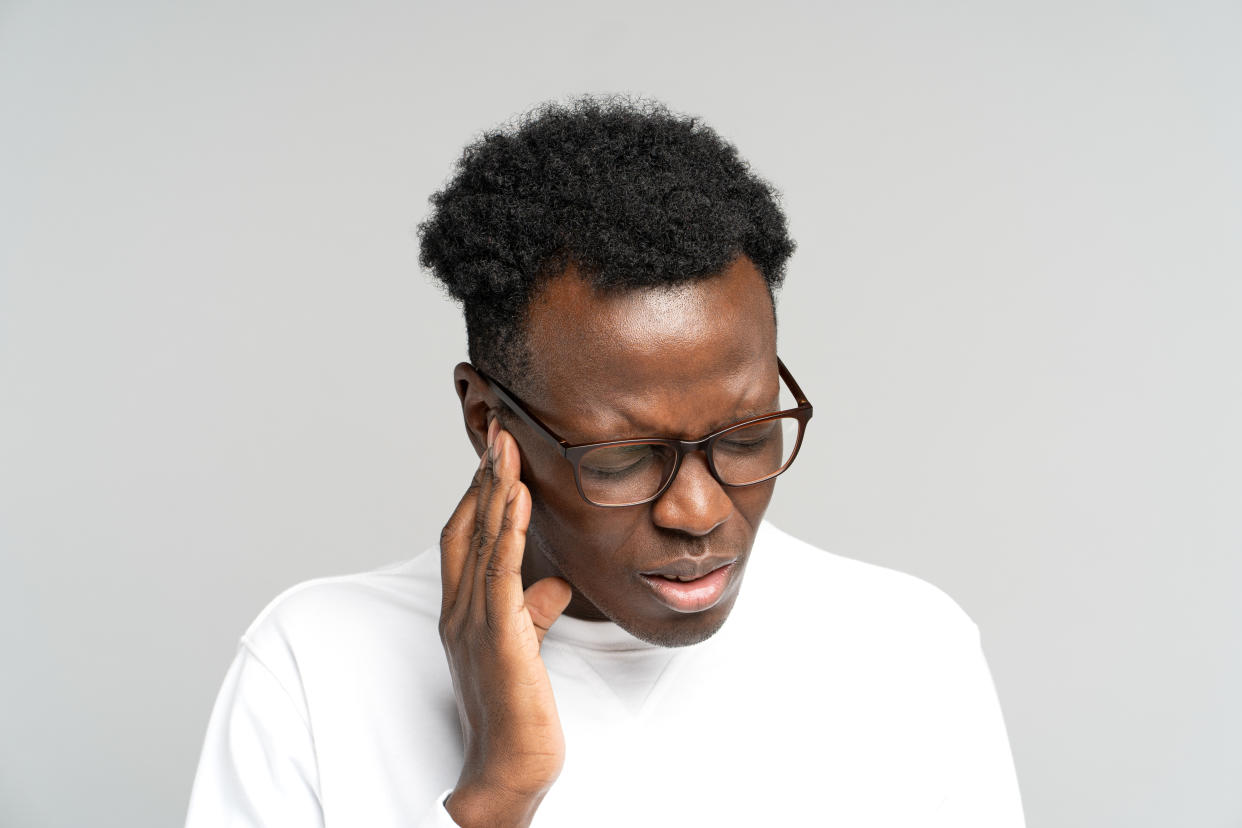How tinnitus can affect your mental health and wellbeing

If you’ve ever had the displeasure of hearing a high-pitched ringing sound or constant buzzing in your ear that doesn’t emanate from any external sources, then you might be living with tinnitus.
Tinnitus is a hearing condition that is very common, with the National Institute for Health and Care Excellence (NICE) estimating around 13% of adults in the UK (7.1 million people) experience prolonged tinnitus.
While most people who live with tinnitus say it doesn’t cause them issues, it can be distressing and debilitating for some. The condition, which has no cure, can worsen with stress, and in severe cases, can affect sleep or concentration and have a negative impact on mental health.
Researchers have created an app, called MindEar, that aims to help tinnitus sufferers cope with the condition through cognitive behavioural therapy (CBT).
As reported in the Guardian, MindEar provides CBT via a chatbot. It also offers alternative approaches to dealing with tinnitus such as sound therapy.
How does tinnitus impact mental health?
The app is the result of a study published in the journal Frontiers in Audiology and Otology, led by Dr Fabrice Bardy from the University of Auckland - who himself lives with tinnitus.
He wrote that, for some people, experiencing tinnitus can lead to feelings of distress, which in turn draws more attention towards the condition.

This leads to the creation of more negative thoughts, while "underlying beliefs and changes in behaviour (eg avoiding situations for fear of making tinnitus worse) also enhance negative thinking, increasing distress and feeding back into the cycle".
However, CBT has been shown to help people manage their symptoms by "reconceptualising the sound to be less threatening".
Commenting on the new app, Andy Shanks, co-founder and CPO at eargym, tells Yahoo UK: "The impact of tinnitus and other hearing problems on mental health is well documented and unfortunately, unsurprising.
"The link between hearing issues, mental wellbeing, and cognitive health, make it more important than ever that hearing care is seen as an integral part of general health and wellbeing. We should all be taking our hearing health seriously."
He adds: "MindEar’s app is a prime example of the potential for digital innovation to tackle lesser-known but debilitating health conditions.
"It’s encouraging to see an app which can reduce the frustrating impacts of a condition - tinnitus - experienced by so many members of our community at eargym."
What causes tinnitus?
According to the NHS, it’s unclear what causes tinnitus. It has been linked to hearing loss, conditions like diabetes, thyroid disorders, or multiple sclerosis, anxiety or depression, and a rare inner ear condition called Ménière's disease.
It can also be a side effect of certain medicines, like chemotherapy medicines, antibiotics, non-steroidal anti-inflammatory drugs, and aspirin.
NICE has also stated that tinnitus can be a result of loud noise exposure - which Shanks says is one of the most common causes of preventable tinnitus.
"It's critical that we limit our exposure to noise to prevent any damage to our hearing before it happens," he adds.
"Regularly testing and protecting our hearing, for example wearing earplugs in noisy environments and limiting the time spent and volume at which we listen to music day to day, can drastically reduce our risk of developing hearing loss and conditions like tinnitus.
"By raising awareness and improving accessibility, hearing health apps, which continue to grow in popularity, promise to have a huge impact on those already suffering from hearing related problems, as well as the 1.1 billion young people forecasted to be at risk over the coming decades."
Watch: Noel Gallagher has cured his tinnitus
Read more about mental health:
How cosmetic surgery when you’re young can affect your mental health (Yahoo Life UK, 4-min read)
Talking mental health: What to say when someone's struggling, according to experts (Yahoo Life UK, 8-min read)
Why getting enough sleep is important for mental health, as study shows link between sleep and depression (Yahoo Life UK, 4-min read)


